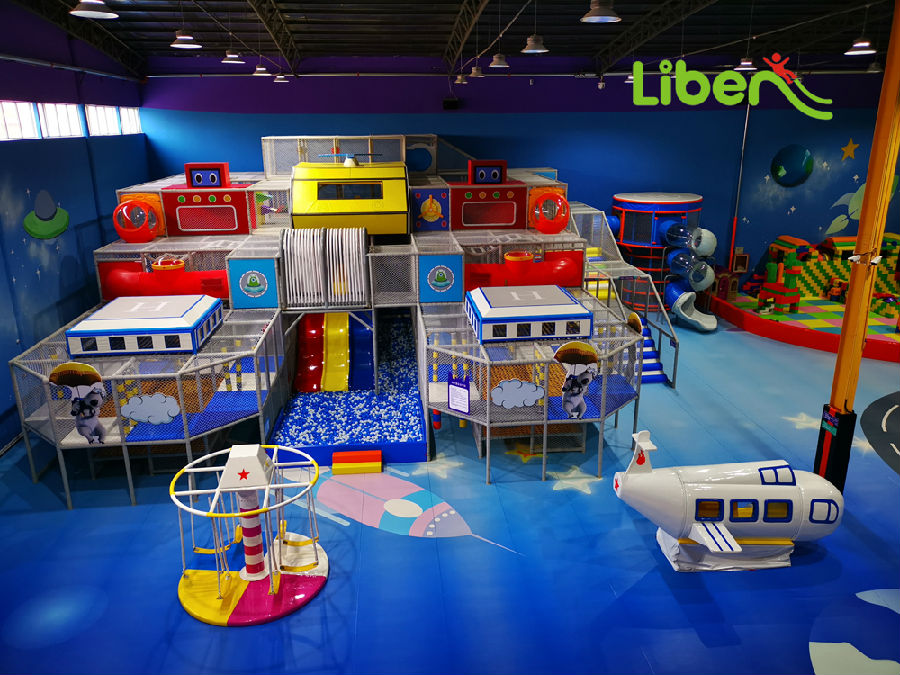How does indoor playground effect children's develop?
Date:2020-02-17 Views:2683 Source:This site
Professionals recognize that the social skills that children develop on the playground often become lifelong skill sets that are carried forward into their adulthood. Independent research concludes that playgrounds are among the most important environments for children outside the home. Most forms of play are essential for healthy development, but free, spontaneous play—the kind that occurs on playgrounds—is the most beneficial type of play.
Exciting, engaging and challenging playground equipment is important to keep children happy while still developing their learning abilities. These should be developed in order to suit different groups of children for different stages of learning, such as specialist playground equipment for nursery & pre-school children teaching them basic numeracy & vocabulary, to building a child's creativity and imagination with role play panels or puzzles.

There is a general consensus that physical activity reduces the risk of psychological problems in children and fosters their self-esteem.[citation needed] The American Chief Medical Officer's report (Department of Health, 2004), stated that a review of available research suggests that the health benefits of physical activity in children are predominantly seen in the amelioration of risk factors for disease, avoidance of weight gain, achieving a peak bone mass and mental well-being.
Evidence suggests that children who participate in physical activity improve their self-esteem.[citation needed] Ekeland, Heian and Hagan (2005) and Gruber[16] found that exercise programmes had a significant positive effect on children's self-esteem.
Commentators argue that the quality of a child's exercise experience can affect their self-esteem. Ajzen TPB (1991) promotes the notion that children's self-esteem is enhanced through the encouragement of physical mastery and self-development. It can be seen that playgrounds provide an ideal opportunity for children to master physical skills, such as learning to swing, balance and climb. Personal development may be gained through the enhancement of skills, such as playing, communicating and cooperating with other children and adults in the playground.
It can also be seen that public and private playgrounds act as a preventative health measure amongst young people because they promote physical activity at a stage in children's lives when they are active and not yet at risk from opting out of physical activity.[citation needed
Children have devised many playground games and pastimes. But because playgrounds are usually subject to adult supervision and oversight, young children's street culture often struggles to fully thrive there. Research by Robin Moore[17] concluded shown that playgrounds need to be balanced with marginal areas that (to adults) appear to be derelict or wasteground but to children they are area's that they can claim for themselves, ideally a wooded area or field.
A type of playground called a playscape can provide children with the necessary feeling of ownership that Moore describes above. Playscapes can also provide parents with the assurance of their child's safety and wellbeing.